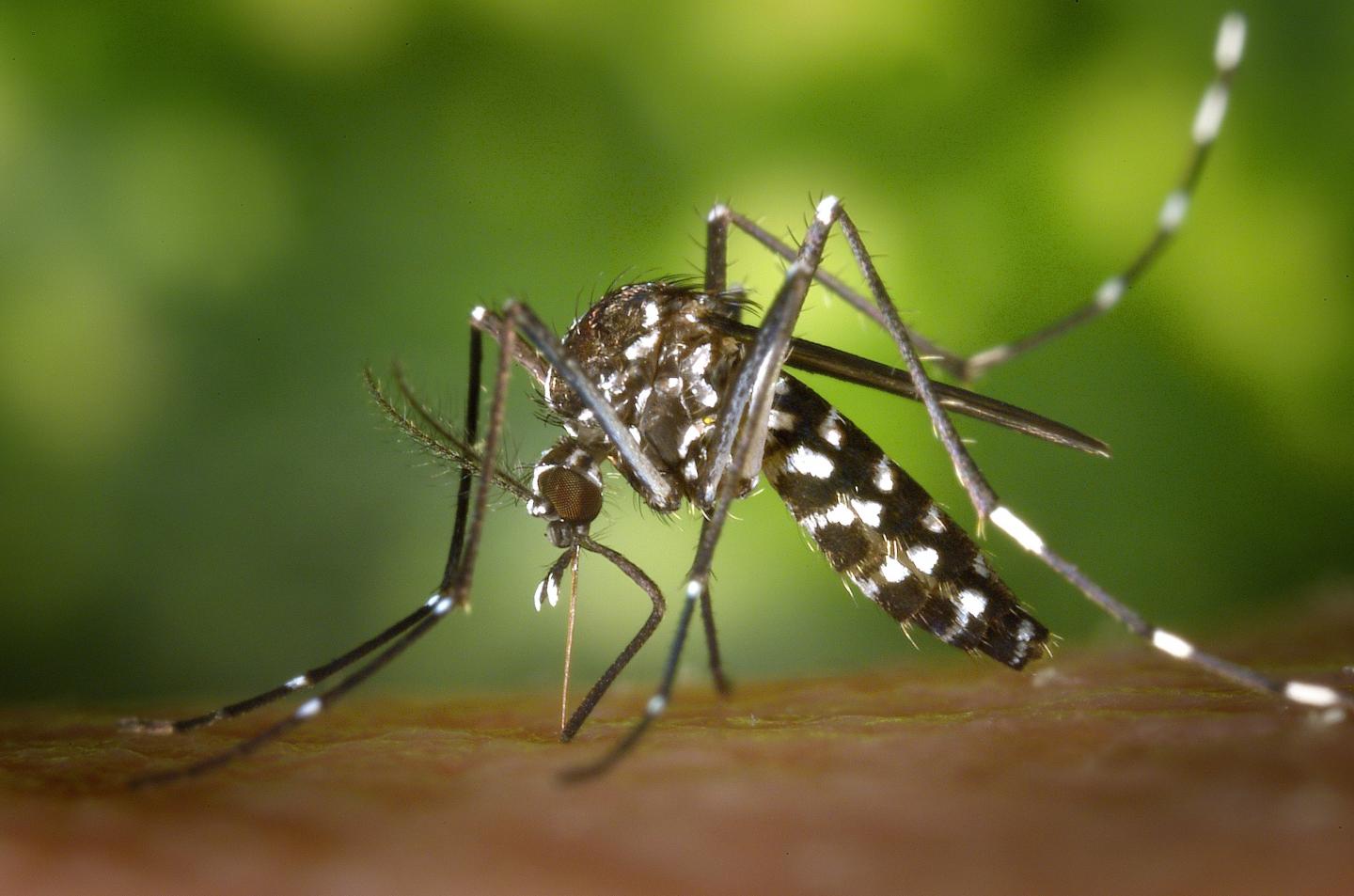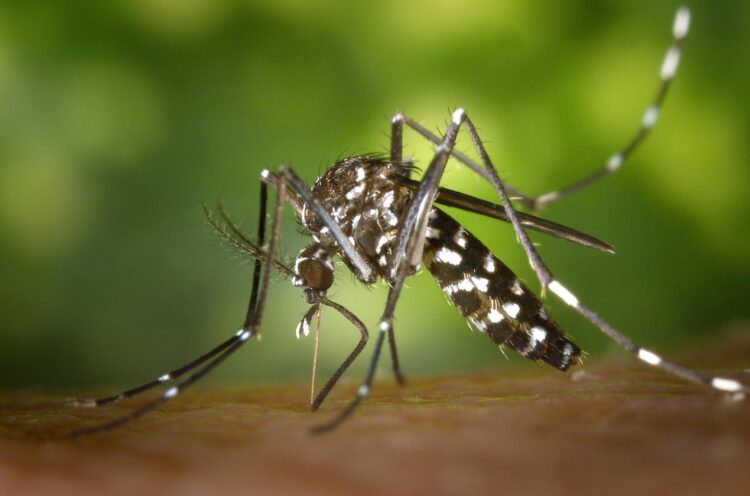Scientists develop a pocket-sized tool for rapidly identifying various mosquito-borne diseases in resource-constrained clinical environments

Credit: Gwangju Institute of Science and Technology
The ongoing COVID-19 pandemic has shown how important it is to have tools that can rapidly diagnose viral infectious diseases. Aside from the SARS-CoV-2 virus, which has currently taken the spotlight, the zika, dengue, and chikungunya viruses have also become major threats to human health in many parts of the world, particularly in tropical countries. All three viruses are transmitted by mosquitoes and cause diseases that have similar symptoms, making early diagnosis particularly difficult without complex molecular diagnostic equipment.
In a recent effort to make the diagnosis of these mosquito-borne diseases faster and easier, a team of scientists, led by Professor Min-Gon Kim from the Gwangju Institute of Science and Technology in Korea, have developed a compact, fully automatic, and inexpensive tool that can identify the presence of these viruses from a blood serum sample. The device, named LAMDA (stands for lab-on-paper for all-in-one molecular diagnostics) by the scientists, is essentially a mini laboratory on a paper strip–vaguely reminiscent of over-the-counter pregnancy tests.
LAMDA performs all the steps of a standard nucleic acid test (a molecular diagnostic test), namely sampling, extraction, amplification, and detection of the target viral RNA, without external intervention at any intermediate step. To use LAMDA, one has to simply place a drop of blood serum and some drops of distilled water on two pads. The liquids naturally flow through the paper strip horizontally and reach the base of a small vertical stack of layers that extracts all the RNA from the sample and multiplies any existing viral RNA of the three diseases.
The top layer of the vertical stack comprises individual “reaction” patches, each designed to detect one of the three diseases. After the RNA is extracted, it flows up to the top layer, where “LAMP (Loop-mediated isothermal amplification)” reactions cause the fluorescent indicators on a patch to become dim if its target viral RNA is present in the sample.
In this way, LAMDA can correctly diagnose any of the three mosquito-borne diseases in less than an hour. Excited about the results, which are published in Elsevier’s Biosensors and Bioelectronics, Prof Kim remarks: “We believe that with minor modifications, such as a portable system to maintain reaction temperature at 65°C and a means to detect the fluorescence change with a smartphone, the proposed all-in-one paper chip can become a portable, low-cost, user-friendly, sensitive, and specific nucleic acid test platform with great potential in point-of-care diagnostics.”
LAMDA could be an excellent option for resource-limited clinics and hospitals, which are unfortunately common among countries most affected by mosquito-borne diseases. It could also bolster future research in the field of diagnostics for other infectious diseases. “We certainly hope that our approach and achievements with LAMDA will be helpful to advance research and development of on-site medical diagnostic tools,” Prof Kim concludes.
Perhaps, a generation of accurate and high-utility pocket diagnostic tools is on the horizon!
###
Reference
Authors: Youngung Seok (1), Bhagwan S. Batule (2,3), and Min-Gon Kim (2)
Title of original paper: Lab-on-paper for all-in-one molecular diagnostics (LAMDA) of zika, dengue, and chikungunya virus from human serum
Journal: Biosensors and Bioelectronics
DOI: 10.1016/j.bios.2020.112400
Affiliations:
1. Department of Mechanical Engineering and Applied Mechanics, School of Engineering and Applied Science, University of Pennsylvania
2. Department of Chemistry, School of Physics and Chemistry, Gwangju Institute of Science and Technology (GIST)
3. Boditech Med Inc.
About Gwangju Institute of Science and Technology (GIST)
Gwangju Institute of Science and Technology (GIST) is a research-oriented university situated in Gwangju, South Korea. One of the most prestigious schools in South Korea, it was founded in 1993. The university aims to create a strong research environment to spur advancements in science and technology and to promote collaboration between foreign and domestic research programs. With its motto, “A Proud Creator of Future Science and Technology,” the university has consistently received one of the highest university rankings in Korea.
Website: http://www.
About the author
Dr. Min-Gon Kim is a Professor of the Department of Chemistry at the Gwangju Institute of Science and Technology. His research group focuses on the development of biosensors and nanobiomaterials by the integration of bio-organic and inorganic materials. Dr. Kim’s Lab is developing rapid, high-sensitivity and affordable biosensors for diagnostics and food safety. Another focus area is biomolecule immobilization and bio-nanoprobe syntheses. In particular, Kim’s research group has achieved great success in the development of lab-on paper devices, LSPR, colorimetric, FRET, and CRET biosensors to detect target analytes.
Media Contact
Nayeong Lee
[email protected]
Original Source
https:/
Related Journal Article
http://dx.





